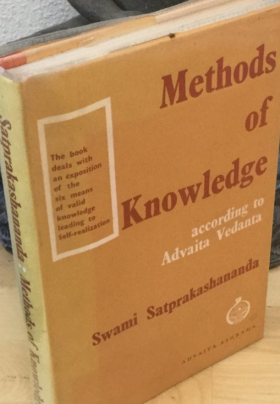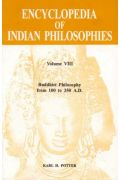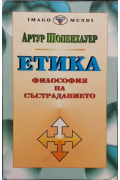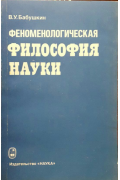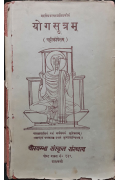The simple question, 'How we know?" is one of the toughest problems that have confronted the human mind. Methods of Knowledge presents to modern thinkers the Vedantic approach to this universal problem. It dwells on different types of knowledge from sensory experience, which man shares with the lowest living beings, up to the transcendental perception of ultimate Reality claimed by great mystics and seers of the world. The commonest of all cognitions has proved to be no less enigmatic than the rarest of them all. Modern epistemologists-the idealists, the realists and the mediators-have grappled with the former without reaching a satisfactory solution, while they have hardly recognized the letter. The present treatise includes a comprehensive and consistent treatment of both these types of experience.
Besides the interpretation of different forms on non-existence, to which Western epistemology has paid scanty attention. True to the Advaita position the book tackles the problems of knowledge with reference to its source, the self within, with is undeniable, although unnoticed. Though ancient, the process is ever new, being applicable in all cases of cognition. The author has tried to present the Advaita views in relations to those of other Indian and Western systems of thought. The book is suited to thinkers in general within and without the academic circle.
Early in our century Oswald Spengler called for a Copernican revolution in history which would relieve Westerners of their habit of equating what happened in Europe during the last 2500 years with history as a whole and place it in the perspective of world history. A comparable Copernican revolution in philosophy is, fortunately, under way. Bertrand Russell has not stood out during his lifetime as an admirer of Asian thought, but long after his contributions to mathematical logic have been forgotten his History of Western Philosophy may be remembered, not for its contents but for its title which, in the Western world, was the first to have the grace to recognize that Western philosophy is not synonymous with philosophy generally. The Honolulu conferences and companion journal, Philosophy East and West, have kept alive the distinction implied by Russell's title, and have made it more explicit.
By now it is pretty well recognized that Asia generally, and India in particular, has a philosophical heritage as rich, subtle, and variegated in its own ways as is that of the West. The next step will be to see that its merits do not belong wholly to the past; that they are not simply those of an historical monument. Even among Indians there is a disposition today to view the glories of Indian philosophy as gracing a bygone epoch; the future is entrusted, if not to science exclusively, at least to Western modes of thought. If Indians themselves succumb to this view, it is not surprising that few Westerners are aware of how relevant is much in classical Indian thought to the philosophical problems that occupy us today, to say nothing of the problems that don't occupy us but should. This is regrettable. Classical Indian thought presents a rich field for investigation not merely to the historian, not merely to the Orientalist, but to the constructive philosopher grappling with issues of current import.
This brings us to the book in hand-an exposition of Indian epistemology conceived in a resolutely scholarly spirit by one of the most qualified and enlightened spirits of that great land. That it contains a warehouse of information on the classical schools of Indian philosophy will be evident to the reader at once. But I have also been struck by how contemporary and 'Western'-the precise word would be one with which Indological studies in the West began, namely 'Indo-European'-are many of the themes it treats. Conspicuous instances are the relative merits of correspondence, coherence, and verification theories of truth, and the significance of language, or the 'word', in human thought. The author addresses himself to the modern scene without forcing comparisons with its transient currents. The themes to which he speaks are perennial.
It is now twenty-five years that Swami Satprakashananda has been among us, wearing his ochre robe each Sunday morning as, in the heart of America, he voices and exemplifies the primal richness. of India's mind and spirit. It is an honour to preface these few lines to his meticulous account of the fundamental principles of Indian epistemology, authored (as it is) by the one who has taught me virtually everything I know about the thought of that extraordinary sub-continent. The reader will quickly sense that he is a thorough and painstaking scholar. It has been one of the great good fortunes of my life to have known him also as a spiritual leader of men; a man filled with insight and charity and totally dedicated to the service of the Lord.
Advaita epistemology is not easy to expound. How the one non-dual consciousness that is the self appears split into cognizer, cognition and object cognized, it is not possible to explain. To say that this apparent splitting is the work of maya is to say that it is inexplicable. The purpose for which a study of the problem of knowledge is undertaken is not to solve the problem but to go beyond it. The empirical situation in knowledge which demands the distinction of three factors, cognizer, cognition, and object cognized, does not admit of a satisfactory explanation. While the systems of philosophy that are opposed to Advaita imagine that they have offered an explanation, Advaita shows that the problem is inexplicable on the level of relative experience. When this level is transcended in the plenary non-dual experience, there is no longer any problem to be solved. Any epistemological analysis can be useful only in so far as it makes us become awake to this truth. An exposition of the various means of valid knowledge (pramanas) has for its aim, in the context of Advaita, the demonstration of their insufficiency and relative nature, paving the way for their transcendence in the unconditioned self which is pure knowledge. This difficult task, Swami Satprakashananda performs in a dexterous manner in this lucidly written work, Methods of Knowledge.
The classical manual of Advaita epistemology is the well-known text, Vedanta-paribhasa of Dharmaraja Adhvarin. In empirical matters, Advaita is said to follow the Bhatta School of Mimamsa. In the latter school, six means of valid knowledge are recognized: perception (pratyaksa), inference (anumana), verbal testimony (sabda), comparison (upamana), postulation (arthapatti), and non- apprehension (anupalabdhi). Dharmaraja deals with these six means of valid knowledge, but from the standpoint of Advaita, Swami Satprakashananda follows closely, in this work, Dharmaraja's exposition.
Perception is of special importance because the knowledge obtained thereby is immediate, unlike the knowledge that results from inference, etc., which is mediate. The knowledge of the self that is said to liberate the soul from bondage is direct knowledge which is like unto perceptual knowledge. Only, even perceptual knowledge is not so immediate as self-knowledge. In sense-perception there is the intervention of a sense-organ between subject and object. Even in the case of internal perception there is the operation, according to one tradition (the Bhamati) in Advaita, of mind which is a sense-organ. The final release also is wrought by the mind which has taken on the mode of the impartite self (akhandakara-vrtti) as a result of continued meditation. But this mode subsides after having accomplished its end; and then the non-dual self alone remains.
The other Advaita tradition (the Vivarana) holds that the mind is not a sense-organ, but an auxiliary to all types of knowledge. The final release, according to this view, is gained through the major texts of the Upanisads which teach non-difference of the so-called individual soul from the supreme self. It is not as if verbal testimony (sabda) cannot yield immediate knowledge. From verbal testimony one may gain mediate knowledge or immediate knowledge, depending on the nature of the object. If the object is remote, then one can have only mediate knowledge. If the object is immediate, then it is possible to obtain from verbal testimony an immediate knowledge thereof. Since there is nothing more intimate or immediate than the self, self-knowledge gained through the major texts like That thou art' can be immediate.
Other means of valid knowledge, such as inference, are useful in so far they can render intelligible the mediate knowledge of the self. The intuitive experience which is called self-realization is not infra- rational but supra-rational. Sankara has pointed out in several places that reasoning is a necessary aid for understanding scripture. An unreasoned belief is no good at all. Hence", in the process of inquiry consisting of sravana (study), manana (reflection), and nididhyasana (meditation) rational reflection occupies a strategic place. Advaita does not advocate blind acceptance of authority; even scripture becomes authoritative only because its truth gets corroborated in one's own experience.
- Hardcover
- Dust jacket
Book or product condition in points:
95-100 - like new, in perfect A condition.
80-94 - used, in excellent B condition.
50-79 - used, in good C condition.
30-49 - used, in acceptable D condition.
No posts found

